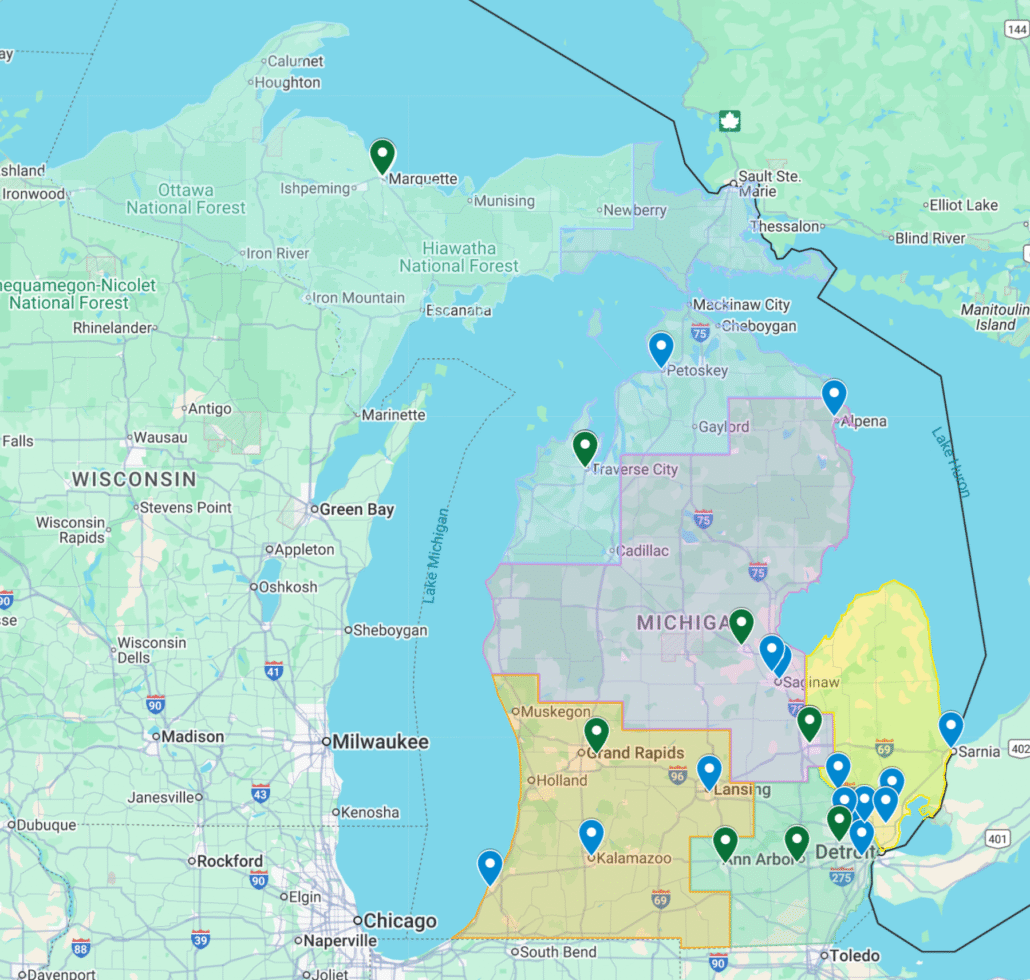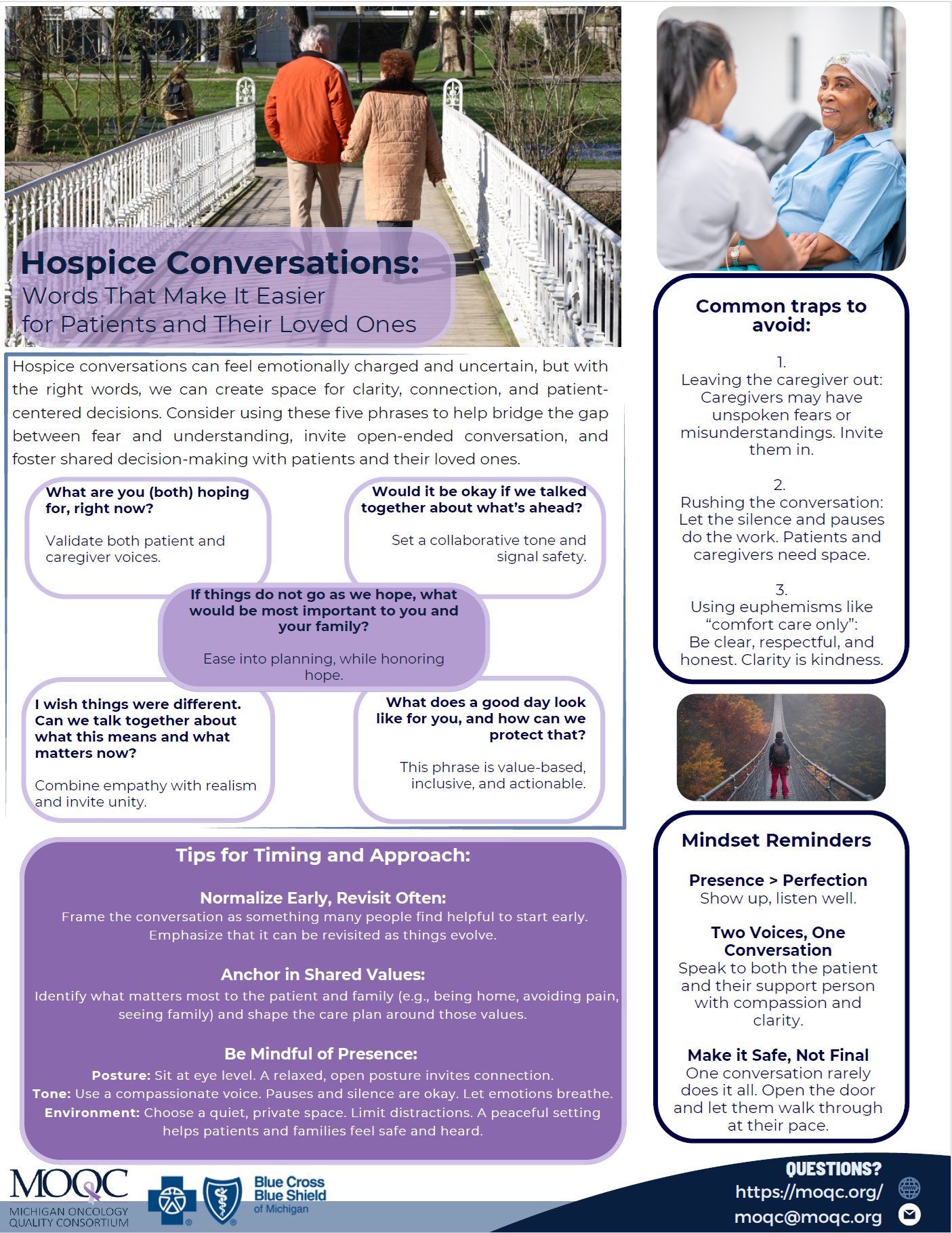What is Palliative Care?
Palliative care is specialized medical care for people living with a serious illness, such as cancer. Patients in palliative care may receive medical care for their symptoms, or palliative care, along with treatment intended to cure their serious illness. Palliative care is meant to enhance a person’s current care by focusing on quality of life for them and their family. Palliative care is a resource for anyone living with a serious illness, such as cancer. Palliative care can be helpful at any stage of illness and is best provided soon after a person is diagnosed.
In addition to improving quality of life and helping with symptoms, palliative care can help patients understand their choices for medical treatment.
What is Hospice?
Hospice is designed to provide support to patients and caregivers who are facing a life-limiting illness, such as advanced cancer. The main philosophy of hospice is to ensure that patients live in ways that are most valuable and meaningful for them. Hospice care has been shown to improve quality of life for patients at the end of life. Medical oncology practices have partnered with hospices from across Michigan with the goal of increasing enrollment to hospice care, benefitting from hospice earlier, and staying on hospice longer. Several projects have been identified for implementation in each MOQC region under this initiative, with support from the MOQC Coordinating Center.
Practice Benefits
- Tools for starting conversations about palliative care and hospice with patients and caregivers
- Information sheets to guide patients and caregivers as they choose a hospice
- Letter templates to facilitate communication between hospices and practices
- Education about palliative care and hospice for clinicians
Palliative Care and End-of-Life Task Force
Interested in becoming involved?
Resources
MOQC-created materials for Patients, Families, and Practices
- Hospice Conversations
- Palliative Care for Cancer Patients and Loved Ones
- Understanding Health Proxies and Patient Advocates
- How To Choose A Hospice
- Is Hospice Right For My Loved One and Me?
- Palliative Care vs Hospice Care
- Palliative Radiation Treatment: What to Expect
- Questions You May Have About Hospice
- What Should I Know About Hospice?
- Palliative Care and Hospice Continuum Diagrams
Original video post date: 1/8/2021
Original video post date: 1/8/2021
Original video post date: 1/7/2021
Original video post date: 12/28/2020
Healthcare Team-Directed Educational Materials
All Team Members
- The Center to Advance Palliative Care
- Hospice Use Among Patients With Cancer: Trends, Barriers, and Future Directions (ASCO JCO Care Delivery Review)
- The Human Connection of Palliative Care: Ten Steps for What To Say and Do
- Institute of Medicine: Dying in America (Improving Quality and Honoring Individual Preferences Near the End of Life)
- Barbara Karnes: End of Life Education Materials for Families & Professionals
- Lifespan Doulas: End of LIfe Doula Care
- After Death Home Care: Home Funeral and Green Burial
- National Alliance for Care at Home
- Hospice and Palliative Care Nurses Association
Clinicians
- VITALtalk
- Serious Illness Conversation Guide
- JCO: Special Series February 2020: Palliative Care: Science and Practice
Patient and Caregiver-Directed Educational Materials
Guidelines
National Guidelines
- National Coalition for Hospice and Palliative Care (NCHPC): Clinical Practice Guidelines for Quality Palliative Care
- National Comprehensive Cancer Network (NCCN): Palliative Care Guidelines
- National Alliance for Care at Home
- American Society of Clinical Oncology (ASCO): Palliative Care in Oncology
MOQC Pathways
Palliative Radiation Participation Map



